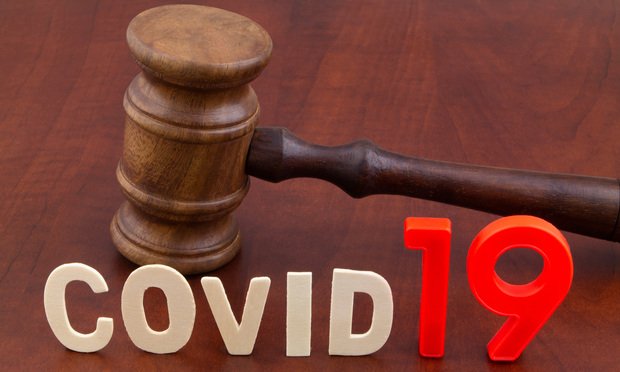 New Jersey Superior Court Judge Christopher Rafano denied a motion by a Woodbridge restaurant operator to dismiss a wrongful-termination suit by John Hollibaugh, who missed several days of work when he developed COVID-19 symptoms. (Credit: Valery Evlakhov/Shutterstock.com)
New Jersey Superior Court Judge Christopher Rafano denied a motion by a Woodbridge restaurant operator to dismiss a wrongful-termination suit by John Hollibaugh, who missed several days of work when he developed COVID-19 symptoms. (Credit: Valery Evlakhov/Shutterstock.com)
In a case of first impression, a judge in Middlesex County, New Jersey, Superior Court has ruled that an employee who takes leave due to COVID-19 symptoms is protected under New Jersey's whistleblower and anti-discrimination laws as well as public policy mandates.
Recommended For You
Want to continue reading?
Become a Free PropertyCasualty360 Digital Reader
Your access to unlimited PropertyCasualty360 content isn’t changing.
Once you are an ALM digital member, you’ll receive:
- Breaking insurance news and analysis, on-site and via our newsletters and custom alerts
- Weekly Insurance Speak podcast featuring exclusive interviews with industry leaders
- Educational webcasts, white papers, and ebooks from industry thought leaders
- Critical converage of the employee benefits and financial advisory markets on our other ALM sites, BenefitsPRO and ThinkAdvisor
Already have an account? Sign In Now
© 2025 ALM Global, LLC, All Rights Reserved. Request academic re-use from www.copyright.com. All other uses, submit a request to [email protected]. For more information visit Asset & Logo Licensing.








